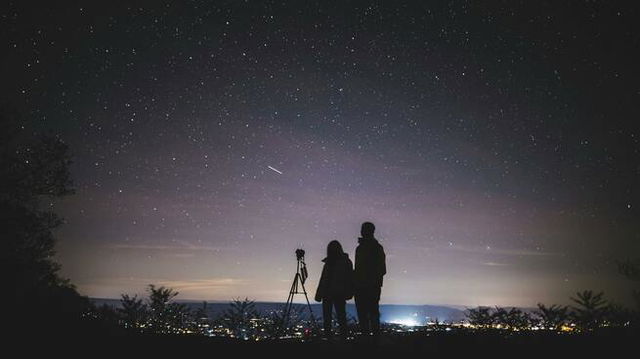Mark your calendars, stargazers! Astronomy Day 2025 will be celebrated on Saturday, May 3, 2025.
Fun fact: This special day is celebrated twice a year- once in spring and once in fall to catch the best phases of the Moon for skywatching.
Doug Berger, a passionate astronomer and president of the Astronomical Association of Northern California, started Astronomy Day in 1973. His brilliant idea? Set up telescopes in busy urban areas so people could look through them and experience the magic of the cosmos without needing to travel miles away.

What Does Astronomy Mean
Astronomy is the scientific study of celestial objects and phenomena beyond Earth's atmosphere. It encompasses everything from the Moon, Sun, planets, and stars to distant galaxies and cosmic events like supernovae and black holes.
Astronomy seeks to understand the universe's origins, evolution, and the fundamental laws governing it.
Significance of Astronomy
Astronomy is an extremely important subject that has many significant present-day applications including:
-
GPS Navigation: The satellite systems that help you find the fastest route home? It was developed using astronomical principles of positioning and timekeeping.
-
Wireless Communication: From Wi-Fi to satellite phones, technologies rooted in astronomical research have made global communication possible.
-
Medical Imaging: Techniques like MRI and CT scans use image processing methods originally designed for studying distant galaxies.
-
Weather Forecasting: Satellites that predict storms and track climate changes rely on space technology inspired by astronomy.
-
Computer Technology: Handling massive amounts of space data has led to breakthroughs in big data management and computer processing speeds.
-
Environmental Monitoring: Astronomical satellites now keep an eye on Earth's ecosystems, helping track deforestation, ocean health, and natural disasters.
How to Celebrate Astronomy Day
- Astronomy clubs and observatories often organize special events with telescopes set up for public viewing. Attend these and witness craters on the Moon, Saturn’s rings, and sparkling star clusters!
- Turn your backyard into a mini planetarium. Bring out blankets, download a stargazing app, and map out constellations with family and friends.
- From Cosmos to The Universe series, there’s no shortage of mind-blowing shows that take you on a visual trip across galaxies. Some examples are Cosmos: A Spacetime Odyssey, and Through the Wormhole with Morgan Freeman.
- Did you know that you can also directly help scientists with real astronomy research from your own computer through platforms like Zooniverse and NASA’s citizen science programs?
You might like to read these articles next: